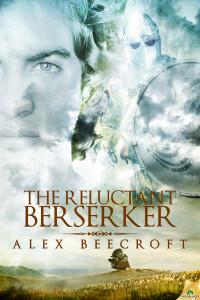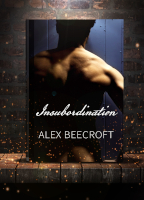Christianity and Paganism in The Reluctant Berserker.
So, I know authors are not supposed to address negative reviews, but I’m going to do it anyway, in a circuitous way. I’ve no desire to hold up any individual review and nobble it, but I’ve had a couple of reviews from people who have had problems with my depiction of Christianity and Paganism in the Reluctant Berserker, and I would like to try to explain why I wrote it as I did.
The first thing I’d like to say is that I know a certain amount about the era of which we speak. I studied Anglo Saxon Art and Archaeology at university, and then I did a thesis on ‘The Cult of the Horse in Early Anglo-Saxon England’ which necessitated me combing all the available evidence about paganism in England in Saxon times.
I say this not to blow my own trumpet, but mainly to point out that there was both thought and knowledge behind my treatment of both subjects.
It’s fair to say that all the written evidence we have from early Saxon England comes to us filtered through the perspective of Christians. This was because it was Christians – monks, nuns, priests – who were literate at the time. All of the source material we have, on which to base a portrait of the world view of the Saxons was written down by Christians. Even Beowulf.
I know that the impression we get of Saxon society is overwhelmingly Christian, because I studied it looking for evidence of paganism. I wanted at the time to learn more about Woden, Tiw, Thunor, Frig and so on, because I wished to worship them – I was a nascent Asatru. But the result of combing the Anglo-Saxon sources for genuine information about the old gods was a deep immersion in Saxon Christianity and a conversion experience.
We need to remember that this is a pre-scientific society. Our modern society is shaped by a great many beliefs that did not exist in Saxon times. Evolution, progress, the ability of science and reason to understand the world, a profound lack of spirituality. Saxon England was very different. Their world was populated with spiritual presences, which were responsible for illness and fate and luck. They weren’t alone in their universe. In fact they were surrounded by invisible presences, from the earth spirits that might be called up to scorn your enemies to death, to the highest of the archangels. The very earth under their feet was alive and watching them.
The melancholy resignation to the will of God, the gnomic sayings, the superstitious use of Christianity as a kind of magic – making the sign of the cross over food one had dropped on the floor to make it safe to eat – all of it is pretty much directly taken from the source material.
Now you can say ‘but of course the source material is going to be heavily Christian if it was written by monks. That doesn’t mean the normal people were all saints’ and you’d be right about that. But… does that mean that I should reject the only available source material and just make something up? I don’t think that’s a better option.
The truth is that there’s even less evidence for what the pre-Christian beliefs of the Saxons might have been. There are some place names that include the elements Woden, Thunor, Tiw, Ing and Frigg, which suggests that some of the stories known about Odin, Thor, Tyr, Frey and Frigga might have been shared by the Anglo-Saxons. I’ve used that to justify having Leofgar make reference to some stories known from Norse myth.
Beyond that, there are some unexplained references to goddesses like Eostre and Nerthus in the writings of the (Christian) Venerable Bede. And there are some magical chants and formulae in the Leechbooks of the time (early medical texts) which I have used in forming the character and beliefs of Saewyn the healer.
So, really to wind this up before I get tedious – it may be too late there – the reason that The Reluctant Berserker is such a blatantly Christian and indeed Catholic book is that Saxon society and world view was a blatantly Christian and indeed Catholic one (though with some input from Celtic Christianity.)
And the reason why my healer is more in touch with paganism and yet uses her magical powers to curse her son’s killer is not because I’m saying that paganism is inherently evil. It’s because – by early Saxon mores – she has every right and indeed the duty to avenge her son’s death. She’s doing a thing which the early Saxons would have thought of as laudable. And I decided to allow her to do it in an authentic way, by setting up a spite stake against his murderer.


This story is fantastic and I applaud your blog post. Sometimes I feel readers quickly jump into a book expecting (and indeed wanting, to a degree) a slight twist on the “same old same old” and get jolted when they end up with a book that is so much more. You know of what you write, which makes it all the richer to me. 🙂